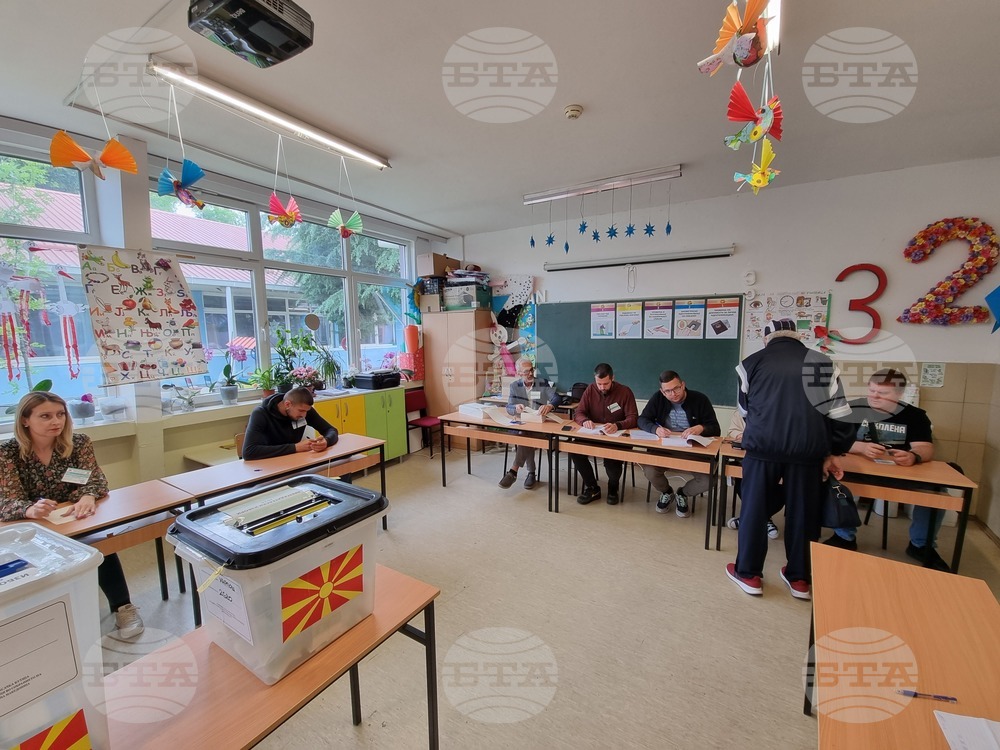site.btaNorth Macedonia Votes in Local Elections Sunday


Voters in the Republic of North Macedonia are going to the polls on Sunday to elect mayors and municipal councillors in the country's 80 municipalities and in the capital Skopje. A total of 1,832,415 voters are eligible to cast ballots, including 112,000 citizens temporarily working or residing abroad, 2,162 inmates or detainees, and 450 residents of nursing homes.
Voting began on Saturday with the participation of sick and infirm voters, prisoners and residents of nursing homes in the country.
Polling in the 3,474 voting stations across North Macedonia started at 7:00 am local time (8:00 am Bulgarian time) and will continue until 7:00 pm local time. The vote is secret, and biometric identification devices are being used to verify voters' identities.
The ballot papers list the names of all mayoral candidates and the leaders of party and coalition lists for municipal councillors. In Skopje, where there are 16 candidates running for mayor, voters will receive four ballots: one for the Skopje mayor, one for the City Council list, and two for mayor and council candidates in the respective Skopje municipality. According to the State Election Commission, the longest ballot in these elections, measuring 50 cm, is in Bitola.
A total of 22 parties, 19 coalitions and 119 independent candidates are running in the elections. There are 309 mayoral candidates in the 80 municipalities and Skopje, and 576 council lists with 10,490 candidates.
According to the Institute for Democracy "Societas Civilis" Skopje, 90% of the mayoral candidates are men and 10% are women. The youngest mayoral candidate is 23, and the oldest is 79. Among the council candidates, 81% are men and 19% are women. There are 78 candidates aged 18, seven aged 90 or older, and the oldest candidate is 97.
For the local elections, 1,462 domestic and international observers have been accredited, including a 15-member delegation from the Congress of Local and Regional Authorities of the Council of Europe. The mission will hold meetings with media representatives and NGOs, as well as joint working sessions with the core team of the Organization for Security and Co-operation in Europe (OSCE), which is also monitoring the electoral process.
To be elected mayor in the first round, a candidate must win a majority of votes, with a turnout of at least one-third of the registered voters. If no candidate meets this threshold, a runoff will be held 14 days later between the two candidates who received the most votes. Municipal councillors are elected on a proportional representation basis, using the d'Hondt method.
The October 19 local elections are the eighth municipal elections since the country declared independence in 1991.
/DD/
news.modal.header
news.modal.text